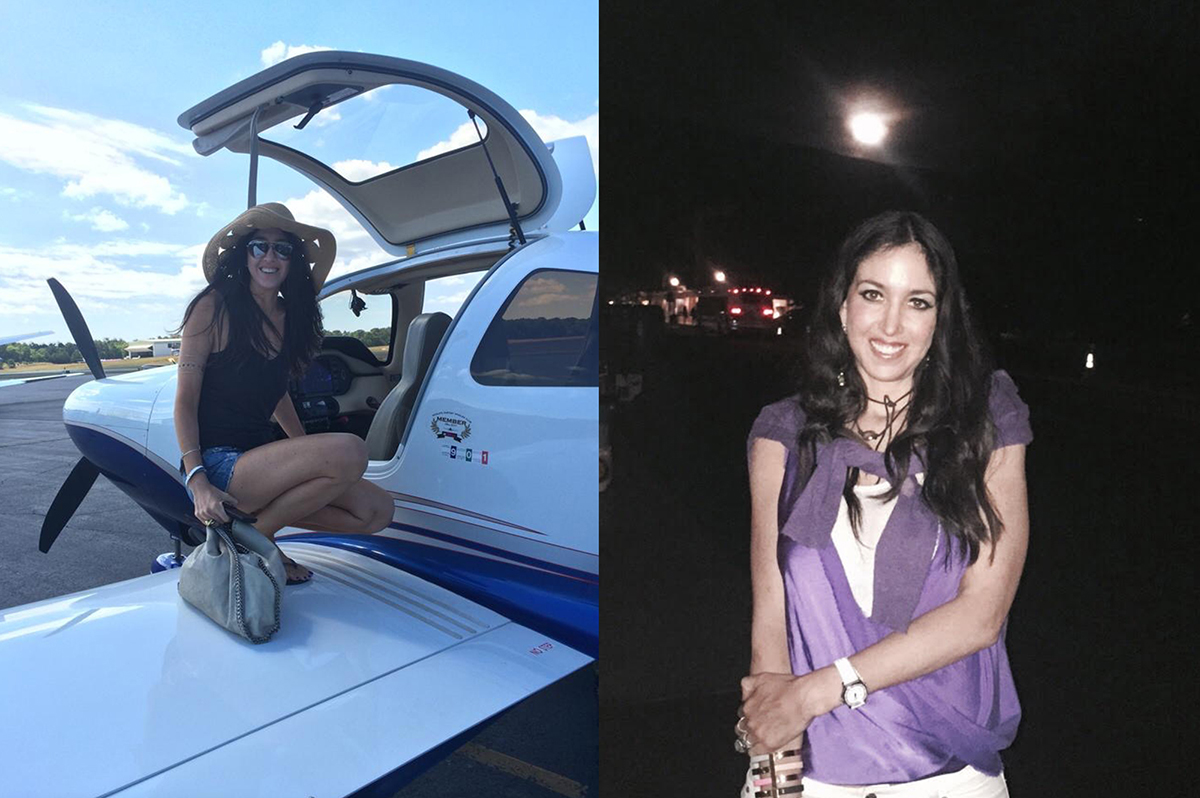Interview: Nisa Amoils

In this edition of Lived It, we sit down with Nisa Amoils, member of New York Angels, one of the largest and longest-running active angel groups in the Big Apple. The former lawyer, entertainment and beauty tech executive now uses her expertise to vet the companies that could make it big. Nisa first attended a NY Angels meeting as a guest, and realized how intelligent, informed, and experienced the members were, many of them had been entrepreneurs in the past. In this interview, we talk to Nisa about everything from what she looks for when doing her due diligence, to how she approaches deal-flow and negotiations, and how investing is like continuing education.
Meet Nisa
Years as an angel investor: 5 years Number of investments: Over two dozen investments
A day in the life of Nisa
Nisa’s day looks very different depending on what comes up. She can either be doing two to three company screenings per day with entrepreneurs, a due diligence session, advising a portfolio company, attending industry events. or on-air taping of a show where she is a judge for an entrepreneur. The other portion of her time probably is spent reading trade magazines, articles, blogs, or Twitter, or posting articles.
First Investments
Nisa’s background is in law, entertainment, and beauty tech, including roles in business development and marketing strategy at NBC Universal and Time Warner. Because she has operational experience in a variety of roles and industries, she has taken operating roles in startups when needed to do fundraising, partnerships, customer acquisition and legal work. I’m not coming to investing from a traditional banking or finance background, but I think that’s a good thing in that it allows me to look at investing differently and I’m willing to roll up my sleeves in operations.
“I started investing when I went through a boot camp called 37 Angels. It’s a great organization of female investors that invests in male and female lead companies. I just started by investing in companies that I sourced through that organization, and then later joined New York Angels and started investing in companies that I sourced through there, and also doing it on my own, as well.”
When Nisa first started investing, she had only a few people in her network who were also investing. Regardless, her friends and family were “really supportive and excited” that she was becoming an angel investor.
Other Investments
Other Investments and Advisory Roles: HeTexted, BeautyBooked, Know Your Crew, BARTRENDr, Dealflicks, Modalyst, laxmi
Markets: Mobile, Enterprise Software, Tech (b2b and b2c), Beauty, Health and Wellness, Marketplaces
Why do you angel invest?
“I angel invest to learn about new industries and to work closely with talented and passionate entrepreneurs. I also invest because I want to see the change in the world that is being proposed and don’t have enough time to do it myself so I want to support others to get it done. I also really like to help women entrepreneurs and am passionate about changing the ratio of women securing funding (less than 5 percent of VC funding goes to women lead companies). I also currently advise a few women entrepreneurs. Investing can be viewed as continuing education with potential for pay-off.”
Deal Flow
Belonging to angel groups, Demo Days from a lot of the accelerators, other syndicates, VCs, LinkedIn, AngelList, or just referrals from other people is how Nisa gets deal flow. She’ll also use CrunchBase, TechCrunch, some other trade organizations to help her find new deals.
Nisa makes anywhere from 10 to 12 deals a year and she invests a range of capital into the business, generally anywhere from $25,000 to $500,000 in these deals, which tend to be primarily based in New York or San Francisco.
“I try to diversify and go into different sectors. In the due diligence process, try and make sure that areas where I might have been burned before, do not repeat themselves, so look for red flags. I think your best mitigation of risk is really doing extensive due diligence. That’s been proven out. I try and do that as best as possible.”
Nisa and her angel groups take doing their due diligence seriously and first go over the fundamentals of the business, everything that was in the pitch deck, on a deeper level. They also do an analysis of the team and the executives, the market, and the competition. Finally, they go over the terms of the deal, the company’s fund-raise, the valuation, why the entrepreneur has chosen to do those terms, valuation, or who else they are talking to as investors.
“I think your best mitigation of risk is really doing extensive due diligence. That’s been proven out.”
With each diligence session she participates in with 37 Angels and New York Angels, Nisa said what she and the other angels in her group discuss and investigate will vary – both in importance and length of session because different issues come up that get greater “air time” in the group.
Nisa said that all entrepreneurs should look for a least a few key red flags when doing her due diligence. Among them are: whether the company will run out of money, whether there is a cohesive team, whether the entrepreneurs have had prior experience, and whether it will be challenging for them to raise more institutional rounds. She also asks whether this is really the time to be doing this in the market place. “Why this team and why now? I think the now is really important. What factors have changed to make this business viable at this point in time? Would it have been viable five, ten years ago?”
“The biggest challenge of it, I would say, is finding really great deals. I don’t mean great entrepreneurs, but specifically great deals because you’re coming in at a certain stage where a lot of it is outside of your control. It’s what happens in later rounds of fundraising.”
Over time, Nisa said her attitude towards investing has evolved as well, which has affected her decisions about what businesses she wants to get involved with.
“I think I’ve grown the most probably in being able to temper my excitement over business. I used to, in the beginning, just get excited about everything and everyone. Now, having lost money along the way, I’ve developed a greater ability to screen out, hopefully, the winners from the losers.”
Who do you go to when you need advice on your investments?
“My fellow angels or industry people.”
"There is so much exciting technology that will continue to evolve and disrupt big corporate industries so we will see more activity from Corporate VCs and accelerators."
Thesis
“My investing tends to be very early stage, but once there is already some revenue or product market fit that has been established and there is some kind of traction. When it comes to the entrepreneurs behind the company, Nisa said she looks for experience, attitude and work ethic above all. Willingness to stick it out through hard times and tenacity are the two most important qualities she looks for. Also they have to be willing to always be raising money as part of their job.
Nisa asks herself, when things are tough for the entrepreneur, which they inevitably will be, will this person really have what it takes: the deep desire and drive, and ability to make sacrifices.
“If I’m an advisor, then I’m actively involved with them. That means I’m readily available to them 24/7. They know that they can call me with any issue. With the ones that I’m not an advisor to, then I’m just reading the investor reports and then maybe asking questions. But it’s more of a passive role.”
Advice

For aspiring angel investors:
Do it because you want to be on the journey and because it’s something you feel is important. It’s always hard to write your first check but you will get satisfaction if you really have a strong feeling about it, and you’ve done all your diligence, then it comes down to a gut decision and supporting the entrepreneur.
For entrepreneurs seeking investment:
Referrals are generally best for most angels. Iwould try to get an introduction through somebody that you know. If you do not know anybody in common, then I would craft a cold email that shows that you’ve done your diligence so that you know what areas this person is interested in, and why it’s a good fit with what you’re doing. Maybe you’ve heard a bit of news about the person. Try and make it relevant so that it doesn’t come off as a cold email.”
Nisa recommends reading
“There are a lot of great books that have been written on angel investing. Both heads of NY Angels – Brian Cohen and David Rose – have written great books on investing. “There’s one that I love for entrepreneurs called The Startup Playbook by David Kidder, which goes through case studies of different entrepreneurs and how they got started and grew their companies.
Subscribe to our Newsletter
Get investment education, interviews with angels and VCs, and exclusive event access.